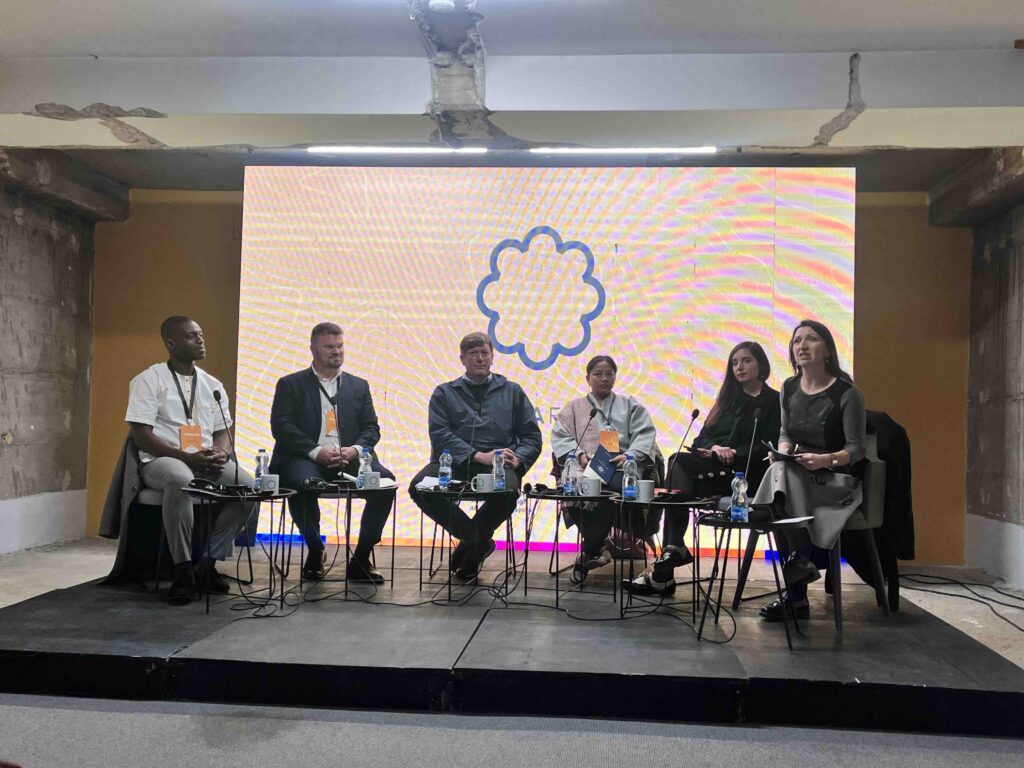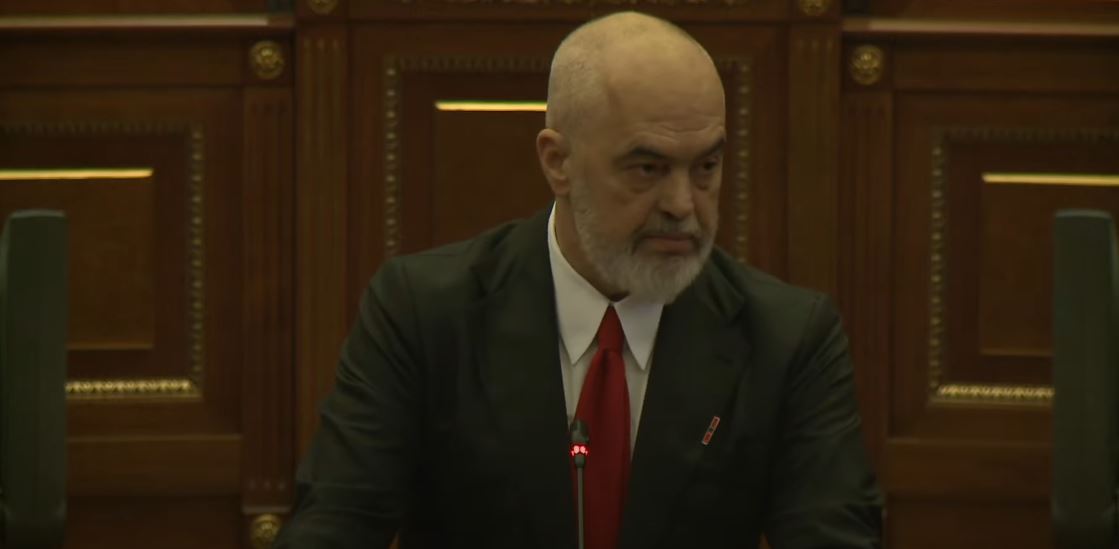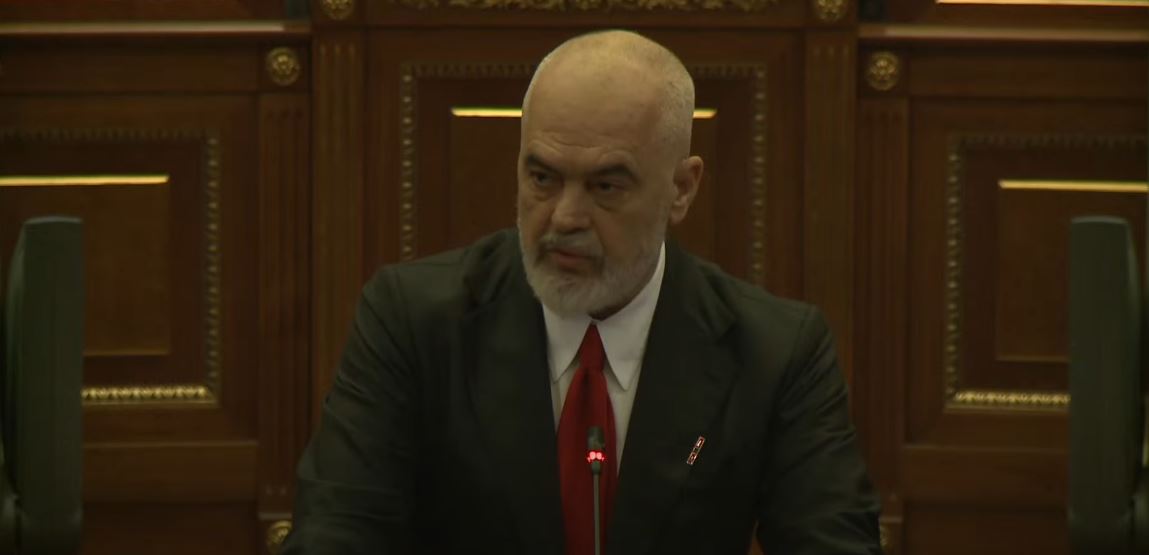
Amid a digital age where information flows rapidly, diasporas worldwide play an increasingly critical role in combating misinformation and cultivating reliable knowledge systems. During a recent panel discussion, experts shared insights on how their initiatives counter misinformation while fostering civic engagement.
During a panel at Ulpiana Forum in Prishtina, panelists underlined the importance of civic activism and technological innovation in combating misinformation. AI-powered software can be used to quickly detect misinformation, requiring minimum staff to oversee it.
Organised by the Kosovo Ministry of Foreign Affairs and Diaspora, the Ulpiana Forum draws on the diplomatic and developmental capabilities of states and their partners to strengthen diaspora engagement.
Andra-Lucia Martinescu, Co-Founder of The Diaspora Initiative in Romania, highlighted the role of civic diaspora networks in uncovering a disinformation campaign linked to Romania’s recent presidential elections.
“We discovered that the far-right pro-Russian contender (in recent Romanian election) benefited from a vast influence operation spread across platforms like TikTok, Facebook, and Telegram,” Martinescu told the panel, which was moderated by Jeta Xharra, editor in Kallxo.com and director of BIRN Kosovo.
Martinescu explained how the forum used AI-powered analysis, diaspora volunteers, investigative journalists, and data analysts to expose fake accounts and coordinated messages that originated from Russian-affiliated networks.
“These messages spread conspiracy theories to amplify the extremist candidate’s profile,” Martinescu explained.
She explained that the investigation’s findings prompted Romania’s Constitutional Court to cancel the election’s first round, noting that she had “responsible and competent authorities reaching out to us to be able to share the data and make for a bigger case with the European Commission.”
Diaspora groups from non-European countries are also becoming more important actors in civic engagement in their home countries.
Originally from Madagascar but living in the USA, Andrianina Irina Randrianarivelo, Founder and Editor-in-Chief of MadaLiving, shared her journey of reconnecting with her Malagasy heritage.
“I realized how disconnected I felt from Madagascar’s realities… In 2019 I went there for the first time in 14 years,” she said.
This realization pushed her to found MadaLiving, a digital publication that provides culturally grounded narratives in English to counter politically influenced local media.
Randrianarivelo recounted the challenges of working in a politically sensitive environment, noting that “exposing government misconduct can provoke severe repercussions, including surveillance.”
Despite these risks, her platform fosters cultural discourse, highlighting stories often overlooked by mainstream outlets. Randrianarivelo also stressed the importance of diaspora-driven storytelling in reshaping narratives.
“We must reclaim our stories and present an authentic image of Madagascar beyond stereotypes,” she urged.
Elian Carsenat, Founder of NamSour from France, discussed how his company evolved from analyzing diaspora names to fighting disinformation. He says that a factchecking organization in Estonia used his software to identify bots spreading Russian propaganda about the Ukraine war.
“They used our software not to map diasporas, not to find gender information, but to analyze what names have been chosen for bots in the very specific context of one different disinformation campaign in 2023 that was again Russian pushed in the context of the Ukraine war,” he explained.
Carsenat mentioned that the quick progression of AI is a challenge in the fight against disinformation. According to him, AI is capable of writing texts that are almost indistinguishable from those written by humans.
Alan Gamlen, Director of the Migration Hub at the Australian National University, highlighted how misinformation shapes migration policy debates.
Gamlen said that 2024 is one of the most vital years for democracy in human history and that migration is one of the world’s greatest challenges. As migration becomes an increasingly politicized issue, facts are often misconstrued or lost, which can impact policy decisions that affect hundreds of millions of people.
“Our research debunked false claims linking migration to rising housing costs in Australia,” he noted.
He says that his team’s findings shifted the political discourse ahead of national elections.
David Selassie Opoku, Senior Technical Instructor at dbt Labs, emphasized the importance of technical literacy and open data infrastructure in combating misinformation in Ghana.
“We empower civil society through data transparency and diaspora-funded initiatives, enabling citizens to fact-check claims and hold institutions accountable,” he stated.
“So misinformation, for me, is some information that is being communicated. Whoever is receiving that information does not have their skills, their understanding, to interpret it in the right way,” he added.
For people in Ghana, Opoku stressed that while AI might be a great technology for them, there are also risks involved due to the ability to purchase private data and the high cost of the internet.
Opoku detailed a collaboration with Ghana’s media organizations that led to the creation of an open-data portal monitoring public projects.
The Ulpiana Forum serves as a multi-stakeholder platform that promotes dialogue on diaspora impact and strategically enhances partnerships in this essential field.

